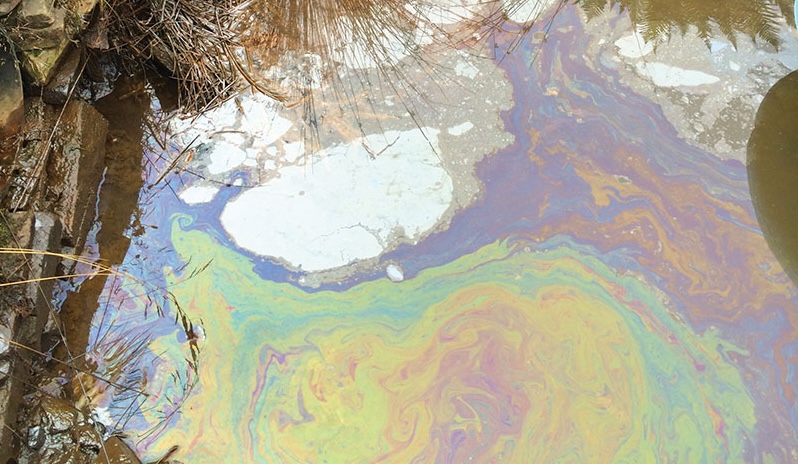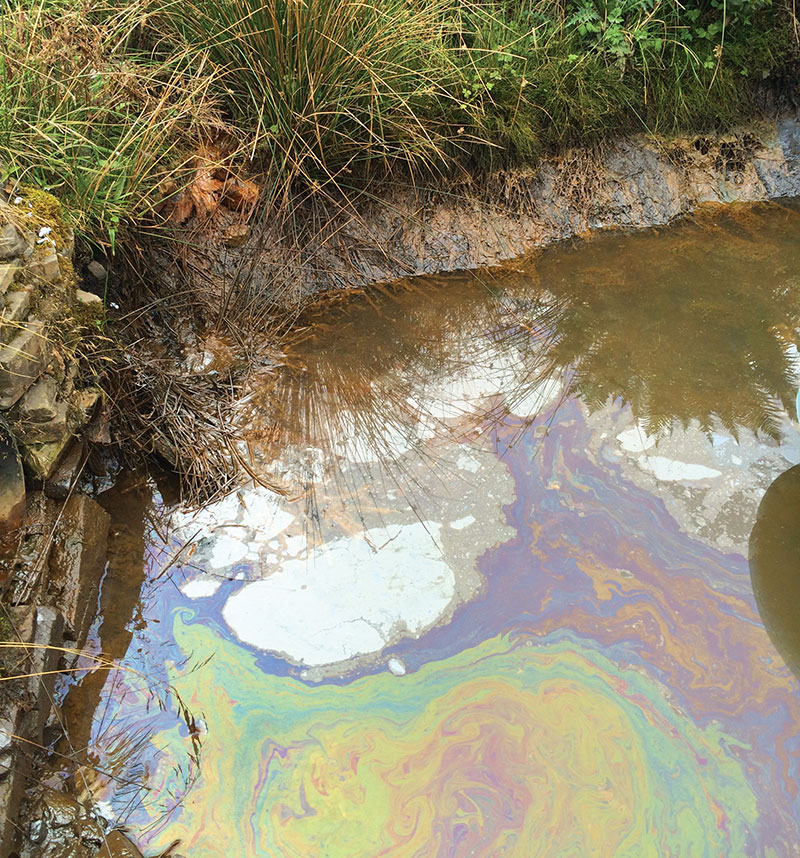
Be safe with chemicals on the water.
by Helen Aitken
Whether preparing for the boating season, performing maintenance or winterizing, it’s important to pick the best environmentally friendly products for the task. Commercial chemical products are designed to clean, protect or disinfect different materials and surfaces. Check the ingredients on the packaging, the directions, warning labels, first aid information and the manufacturer’s recommendations.
Where will the application take place — at the dock or the garage? Do you need protective gear? Will a spill contaminate the soil and water or endanger animals if ingested? Is it better to use elbow grease rather than something caustic? Here are some DIY safety tips when using chemicals aboard.
Product research
Do extensive product research by asking boaters, visiting online forums or inquiring at the marina. Compare products for best results, time to work and if it’s legal to use in your area. Most generic brands work just as well as expensive brand names.
Check the shelf life. Some chemicals break down in sunlight, oxidize, dehydrate, separate or become thick without a stabilizer. Purchase just what you need — you’ll store less and it may be more cost-effective.
Products shouldn’t be used in environmentally delicate or protected areas, over water or without spill protection. Here are a few common products used by boaters and how best to handle them.
Lubricants: Most boat lubricants are synthetic and flammable. Engine oils, gear and hub grease, and hydraulic fluids are toxic and contain heavy metals. These contaminate water, harm aquatic life and become part of the food chain. WD-40 is a terrific lubricant for engines and items like hinges or fishing rods. Originally made from menhaden fish oil, it was environmentally friendly; it’s now silicone-based and shouldn’t be used over water.
Detergents: These surfactants allow oils and water to mix, acting like emulsifiers. They’re great for cleaning up spills at the dock, but they should be labeled as biodegradable and then rinsed properly to prevent soil and water contamination.
Antifreeze: Propylene glycol and ethylene glycol (both alcohols) prevent engine and water systems from freezing in temperatures up to -100°F. Ethylene glycol is highly toxic, causing kidney failure and death for animals and humans if ingested. It tastes sweet to animals, so drips or open containers are prime sources of poisonings. Propylene glycol is safer than ethylene glycol but harmful when ingested in large amounts.
Dress up
Depending on the working environment, consider wearing safety glasses or shields, ear protection, dust masks or respirators, coveralls and gloves. Gloves offer different levels of protection, so choose the right one for the project.
Dress the boat, too. Gasoline is a lubricant and a solvent. It’s one of the biggest water contaminants and can dissolve a fiberglass boat’s gelcoat. Protect your boat from spills and overflows using a spill mat, rags, and leave enough space in your tank for expanding gases.
Storage & disposal
Most products can remain in the original container and stored as recommended; however, using a different container or mislabeling it can be dangerous.
Use a designated receptacle for waste disposal. Clean-up rags and mats should be handled carefully. Besides possible spontaneous combustion from gasoline and paint thinners, other chemical wastes pose environmental hazards for soil and water contamination, animal ingestion and risk to human life.
Use a pan when changing out engine oils and take it to a designated oil collection facility.
Unused or expired chemicals should be disposed of at a hazardous waste site and never poured down the drain or on the ground.
A fuel-absorbing buoy can be thrown into the water to absorb fuel spills. They’re available online and at marine stores.
Common sense
Keeping your area clean before, during and after using chemicals on your boat will make it easier to see a problem and rectify it.
Use the best product for the job and properly dispose of waste so that public spaces aren’t biohazardous to plants, animals and people.
Finally, keep a first-aid kit handy and know how to use it. Have the number for poison control or other emergency services handy, and dial 9-1-1 if needed.
Safety First.




